1871 News
The Royal Albert Hall Opens
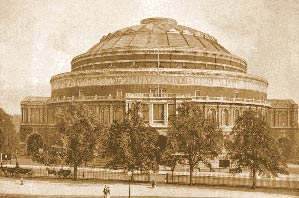
Prince Albert's vision to create an area in London dedicated to the Arts & Sciences' has finally come to fruition. The Royal Albert Hall of Arts and Sciences official opening ceremony took place on 29th March 1871. After a welcoming speech by the Prince of Wales, Queen Victoria was too emotional to speak, so the Prince had to announce that "The Queen declares this Hall is now open".
The building is Italian Renaissance in style, and was designed by Messrs. Fowke & Scott. Its ornamentation of coloured brick and terracotta is most effective, and the frieze, representing the nations of the world, is well worthy of the famous artists who were engaged upon it. Half of the cost of the building, or £100,000, was defrayed by public subscription, and £50,000 was contributed out of the profits of the Great Exhibition of 1851.
'Dr Livingstone, I presume?'
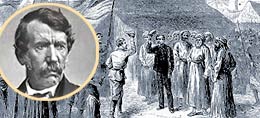
H.M. Stanley, an American journalist, who was sent by his newspaper, the New York Herald, to find Livingstone, Scotland's most famous missionary and explorer, finally met him at Ujiji in October 1871 with the words 'Dr Livingstone, I presume?'. Stanley brought with him much needed medicine and supplies and the two became firm friends. Stanley's attempts to get him to return home were unsuccessful and Livingstone is carrying on his explorations. Livingstone has already travelled more than 45,000 kilometres in Africa and mapped thousands of kilometres, much of which was previously unexplored by Europeans.
Board Schools Rule
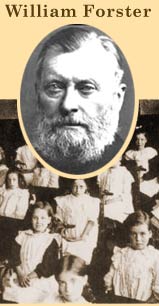
Since 1870 Voluntary Schools have declined in number (except Roman Catholic Schools) because Board Schools provide better buildings and higher pay for teachers.
The Education Act of 1870, also known as the "Forster Act", has given rise to a national system of state education and also assured the existence of a dual system - voluntary denominational schools and non-denominational state schools. The act has established elementary schools nationwide to supplement those already run by the churches, private individuals and guilds. School Boards have been elected to raise sufficient funds to maintain the schools in areas of the country where there was inadequate provision. Women are allowed to vote for the School Boards and are also granted the right to be candidates to serve on the them. These elementary schools are non-denominational and religious instruction, whilst being an integral part of the school curriculum, is not compulsory. The School Boards can charge a weekly fee not exceeding 9 pence or, if they want, let children in free. They have to guarantee attendance for all children in their respective districts between the ages of 5 and 13. Some School Boards have appointed officers to enforce attendance.
Sport

Cricket - An Homage to W.G. Grace
At 23, W.G. Grace is one of the most promising British athletes.
His preponderance as a batsman has come astonishingly quickly.
At 17, he played for the Gentlemen v the Players and the Gentlemen won for the first time in nineteen years. Thereafter for many summers they scarcely lost. This year alone, W.G. scored 2,739 runs, a figure unapproached so far.
Fashion
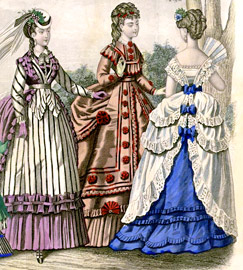
The bustle, a steel contraption that makes the skirt stand out behind, has become the cornerstone on which women's dress depends.
The full-length bustles are cumbersome to sit in as well as carry and control while walking.
Decoration, swathing the lower reaches of a woman's body in numerous ruffles and pleats, emphasizes the movements of that body part to heroic proportions. Light materials and light colours (using the new and vibrant aniline dyes) are in.
Art
This latest offering by Lord Frederic Leighton, who became a full Academician in 1868, has been hailed by the critics and the public alike as one of his best works so far.
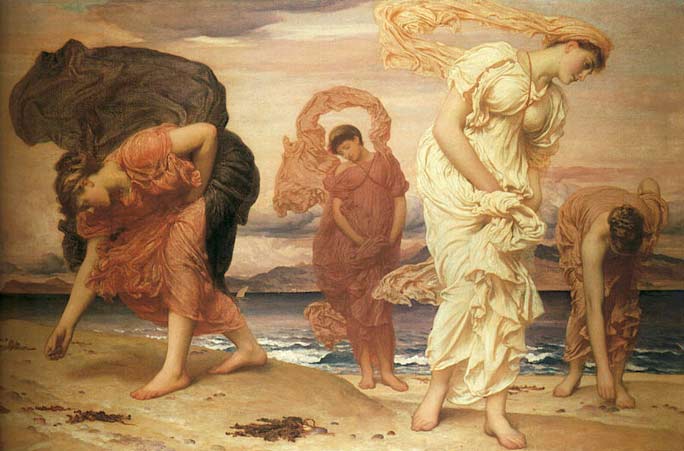
Greek Girls Picking Up Pebbles by the Sea by Lord Frederic Leighton